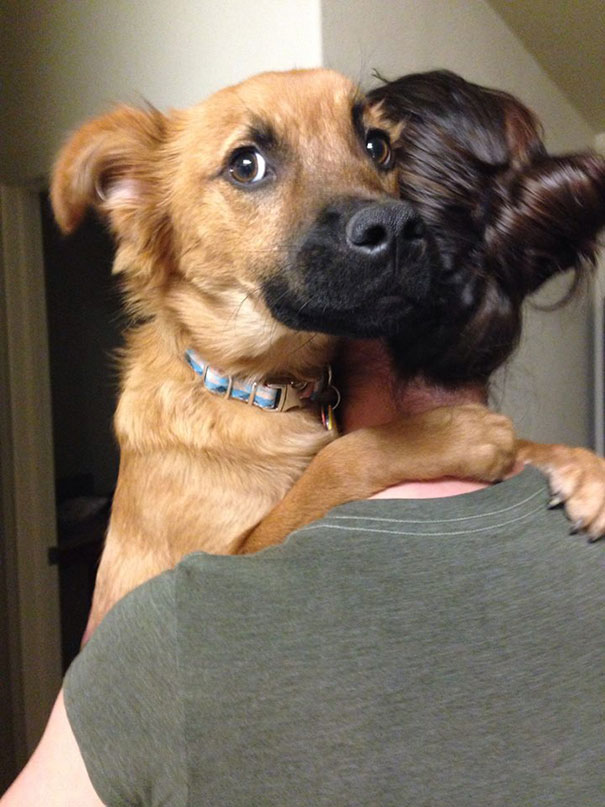HOW CAN BEHAVIOURAL THERAPY BENEFIT YOU AND YOUR PET
Pets play a vital role in our day-to-day lives and to a lot of us they are at par to what we call it a family. This is why we often grieve when our pets fall sick or leave us. Sometimes it can push us to an extent of depression or even a psychiatric breakdown. Since we take them as our fellow pack members, it is important that we understand them fully. Just like us they too have a lot of emotions like aggression, fear, depression, excitement, happiness etc. often we fail to give much emphasis on their emotions. It is time to understand and tackle their behavioural chaos.
UNDERSTANDINGBEHAVIOURAL PROBLEMS

The prime idea in understanding behavioural problems is to accept the fact that dog, cats, birds and all other pet animal’s natural habitat is not our home or the environment that we have created for them. They belong to the nature and they are supposed to be raised in their natural habitat.
Centuries and centuries of domestication has brought about complex changes in their behaviour, IQ and EQ. Their close association with humans made them evolve to man’s best friend. Though it is a positive change, it has its own drawbacks too. Certain natural instincts and behaviours are underwired in them. Introducing them to a man-made environment may have some repercussions.
Most clinical case problems involve, behaviour that might be normal to them but can be objectionable to our point of view. If we require them to live in small apartments where they find it difficult to express themselves, this can significantly affect pet animal’s behaviour.
For example dogs that bark excessively in small congested apartments might not bark in an individual villa or a farm house or if a dog shows destructive behaviour when you lock him up inside the home when you are away need not necessarily show the same behaviour when he is left free in the yard. Hence these deviation in their behaviour cannot be called as a behavioural disorder.
These deviations occur mainly because he is anxious, bored and craves for attention. In such situations the most expedient way to resolve the issues is to leave him open in the backyard so that he exhausts his energy with actual exercise and other activities. So when he comes back inside he wouldn’t have any energy left for his destructive activities.
Most of the behaviouraldisorders can be reversed and undone with conditioning therapies andprogrammes.
WHY YOU HAVE TO IMPROVE YOUR RELATIONSHIP WITH YOUR PET

There are many researches going on in the field of behavioural therapy and management in pet animals. Studies prove that most of the behavioural disorders like urine spraying, destructive disorders, aggression, roaming and escaping, fear related disorders etc can be cured to variable levels with ample care and therapy.
These therapies need great contribution from the pet owners. Bringing out change in the behaviour or correcting a behavioural disorder is not an effortless task, it is an extensive process which needs much care and attention. Most of the pet owners develop a companionable relationship with their dogs and cats.
It is estimated thatcompanionable relationship comprises about 50% of owner-dog relationships. About20% of dog owners seem to keep the dogs primarily as status symbols or valuedpossessions (instead of collecting old cars or guns, they collect and showdogs). The remaining 30% view dogs as a nuisance or worry about the harm theymay do. (Wilbur, 1976). Behavioural challenges that a dog faces could only be pointed out by an owner who shares astrong bond with his/her dog. Therefore, owner plays an irreplaceable role in apet’s physical and mental wellbeing.
HOW PET THERAPIES BENEFIT OUR WELL BEING

Man’s social wellbeing has come down to a question where we have to ask ourselves that, are we contended? lonely? Happy?
Well, answer to these question can be variable. This is where those four legged angels come to the rescue. They just fill our hearts with unconditional love and care. Don’t you want to feel wanted when you reach back home after a hectic day? Doesn’t it feel overwhelming when you realise that you are the world to them? These are the little joys of our day today lives.
Studies and researches has reached to a level that we are grabbing all the help that we could get from them. Dog therapies have actually helped many to overcome the hollowness in their lives. They bring about hues and happiness to those in need. They lessen the fear of loneliness and isolation. Nowadays doctors suggest such therapies quiet often, for children who spend their last months in nursing homes and for them who has lost the reason to live.
Dogs have been trained to become eyes for the blind and ears for the deaf. These dogs undergo special training and behavioural adaptations to help people. They are taught to navigate and react well under demanding conditions. Researches have been conducted in training the orang-utans, chimpanzees and monkeys to help physically challenged people in feeding them, turning the pages as they read, switching on the lights, opening doors etc. These Animals not only brings joy for them but also promote healing and place them in a state of absolute well-being.
Pets are basically like children; they are the social lubricants, facilitating interaction between all the age groups. Don’t abandon them in their hours of need. All it’s going to costs is your patience and compassion.